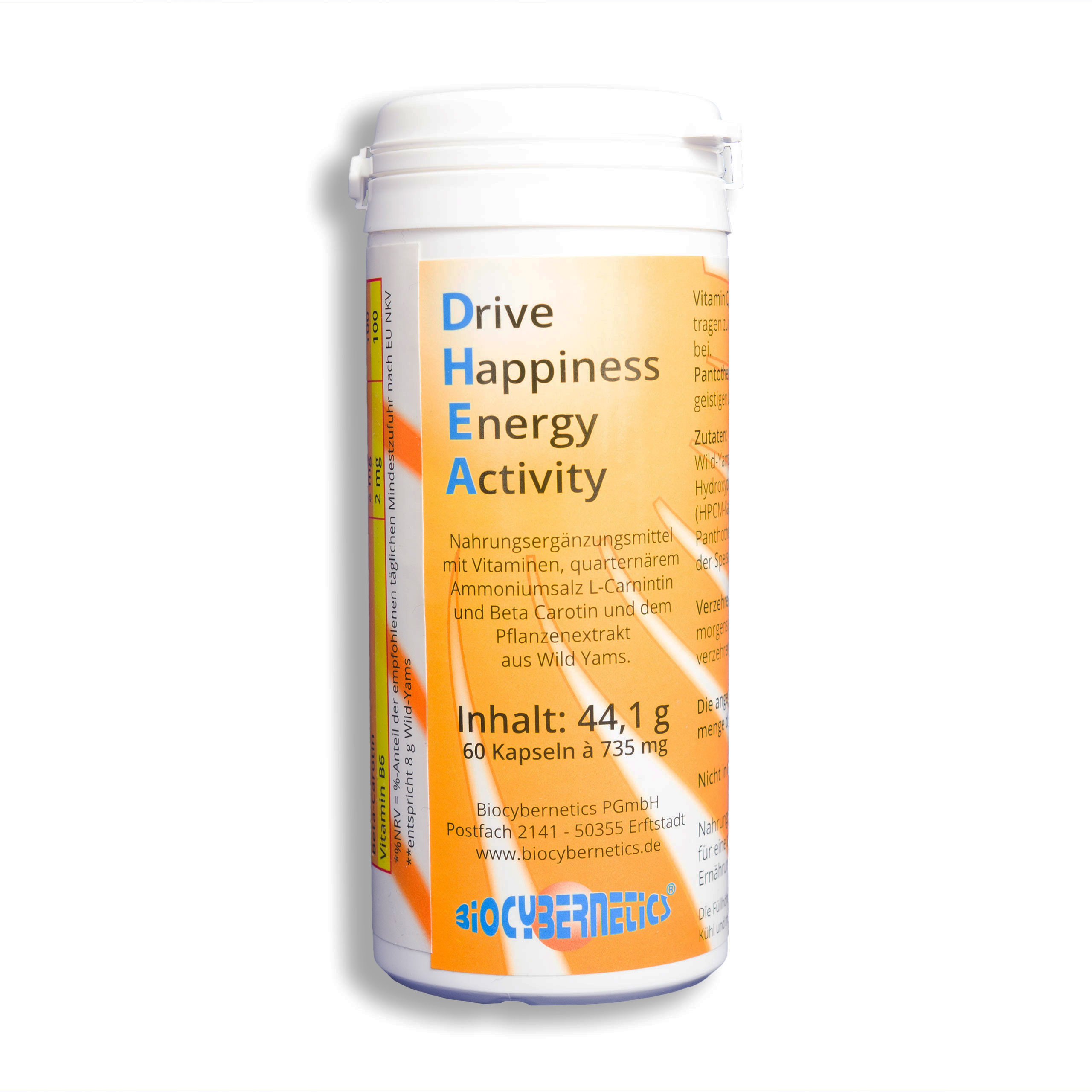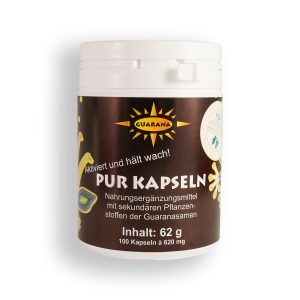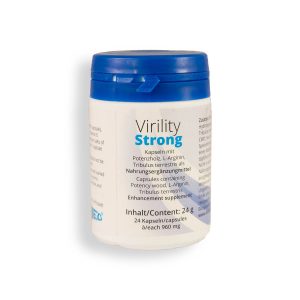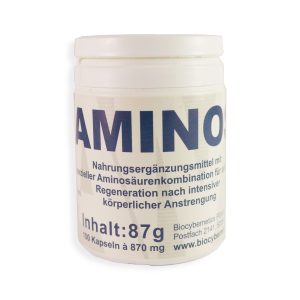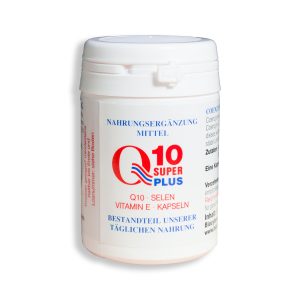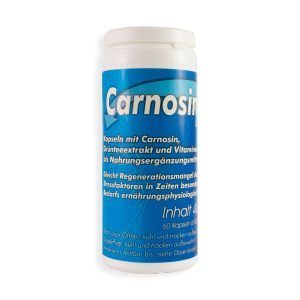Description
D.H.E.A.
Dehydroepiandrosteron
Wild Yams
D.H.E.A. Capsules
Food supplement with vitamins, quaternary ammonium salt L-carnitine and beta-carotene and the plant extract of wild yam.
Vitamin C, vitamin B6 and pantothenic acid contribute to normal energy metabolism.
Pantothenic acid contributes to normal mental performance.
Ingredients:
Wild yams dry extract**, hydroxypropylmethylcellulose capsule (HPCM capsule), L-carnitine, vitamin C, vitamin E, panthothenic acid, anti-caking agent: magnesium salts of fatty acids, beta-carotene, vitamin B6.
Directions: take 1 capsule with liquid in the morning and in the evening.
Do not exceed the indicated daily intake.
Keep out of the reach of children.
Food supplements should not be used as a substitute for a balanced and varied diet.
Contents:
2 capsules contain %NRV*.
Wild yam dry extract 1:20** 400 mg –
L-Carnitine 100 mg –
Vitamin C 100 mg 166
Vitamin E 30 mg α-TE 300
Panthothenic acid 4 mg 67
Beta-carotene 2 mg 100
Vitamin B6 2 mg 100
In the production of our D.H.E.A capsules we attach great importance to high quality raw materials
60 capsules per can
Without gelatine
Laboratory tested
100% vegan, GMO-free, lactose-free and sugar-free
SUGAR FREE
LAKTOSEFREI
100% VEGAN
D.H.E.A. stands for “Dehydroepiandrosterone” which is also known as “Prasterone”. This is a steroid hormone produced mainly from cholesterol in the adrenal cortex.
This is the most abundant in the human body. This prohormone is the precursor for male, as well as female sex hormones (androgens and estrogens, respectively). D.H.E.A. is converted to D.H.E.A.-S in the kidney. Physical training raises the level of D.H.E.A. in the blood as long as metabolic reserves are available in the body. The antagonist of D.H.E.A. is cortisol, which is also known as the stress hormone.
D.H.E.A. is found five times more concentrated in the brain than in any other organ. The concentration of D.H.E.A. in the body also depends on age. It is first found in the human organism at about 7 years of age. From then on it increases until the age of 25-30 years, but at the age of 65 years its concentration has dropped to about 10%-20% of the initial value.
In experiments with men, a decrease in body fat from 31% to about 16%-11% was recorded, while total weight remained unchanged. This was due to a decrease in fat and an increase in muscle mass. Among athletes, this “super hormone” is popularly used to optimize body composition and build more muscle mass. One could say that one benefits more from D.H.E.A. in old age than in younger years.
Yams is the main ingredient in our D.H.E.A capsules.
Yams are one of the most widespread starch plants in the tropics and subtropics. The tubers can withstand long periods of drought as well as long periods of humidity. Their growth period can last between 1 year and up to 30 years. During this time they develop important substances for nutrition. You can find these plants in Africa, Central Asia, South America, from where they came to Europe. So it is not surprising that since prehistoric times of mankind these tubers are used as food. The weight of such a tuber ranges from 1 kg to 50 kg. The stalks of the lily-like leaves and stems can be up to 30 meters.
What is L-Carnitine ?
In tissues, the concentration of L-carnitine decreases sharply with age, which can lead to decreased muscle performance, fatigue and a decrease in muscle mass.
Taking L-carnitine can increase energy production and thus improve physical and mental performance, especially in athletes and the elderly.
L-carnitine is a semi-essential amino acid. The body can form it from lysine and methionine. Mainly we absorb L-carnitine by eating meat.
The following effects are attributed to D.H.E.A.:
More energy
Slowing down the aging process
Better mood (relieves depression and mood swings)
Against burnout
Less body fat (better weight control, mainly in men)
Improves brain performance
May help with skin disorders
May help lipid metabolism disorders.
Diabetes
Bone metabolism disorders
Helps with cardiovascular diseases
Increased libido
The effects of D.H.E.A. are felt very differently.
Vitamin C:
-Contributes to the regeneration of the reduced form of vitamin E
-contributes to normal functioning of the immune system (physical defense) during and after intense physical activity
-contributes to normal energy metabolism
-contributes to a normal function of the immune system (physical defense)
-contributes to a normal function of the nervous system
-helps protect cells from oxidative stress
-contributes to the reduction of tiredness and fatigue
-contributes to normal mental function
-contributes to normal collagen formation for normal blood vessel function
-contributes to normal collagen formation for normal bone function
-contributes to normal collagen formation for normal cartilage function
-contributes to normal collagen formation for normal skin function
-increases iron absorption
Excessive doses of D.H.E.A. may cause acne or increased hair growth. In women, a deeper voice pitch has been noted in rare cases. These symptoms are only noted in the case of an overdose. Interactions with other drugs have not been proven so far.
Vitamin E:
Alpha-tocopheryl acetate (ATA), which is also known as tocopheryl acetate, tocopherol acetate or vitamin E acetate, is a specific form of vitamin E.
Vitamin E is known for its antioxidant properties. Antioxidants help protect the body from harmful free radical compounds.
Normally, free radicals are formed when food is converted into energy by the body. However, free radicals can also be formed by air pollution , cigarette smoke and UV light.
Pantothenic Acid:
Pantothenic acid is an essential component of coenzyme CoA, which is necessary for the breakdown of carbohydrates, fats and amino acids, as well as the synthesis of cholesterol and fatty acids. In detail, pantothenic acid supports
contributes to normal mental performance
contributes to normal energy metabolism
contributes to the reduction of tiredness and fatigue
Contributes to normal synthesis and metabolism of steroid hormones, vitamin D and some neurotransmitters
Vitamin B6:
Contributes to normal energy metabolism
contributes to normal protein and glycogen metabolism
contributes to normal function of the nervous system
contributes to a normal function of the immune system (physical defense)
contributes to normal mental function
contributes to the regulation of hormonal activity
contributes to the reduction of tiredness and fatigue
contributes to normal formation of red blood cells
contributes to normal homocysteine metabolism
contributes to normal cysteine synthesis


